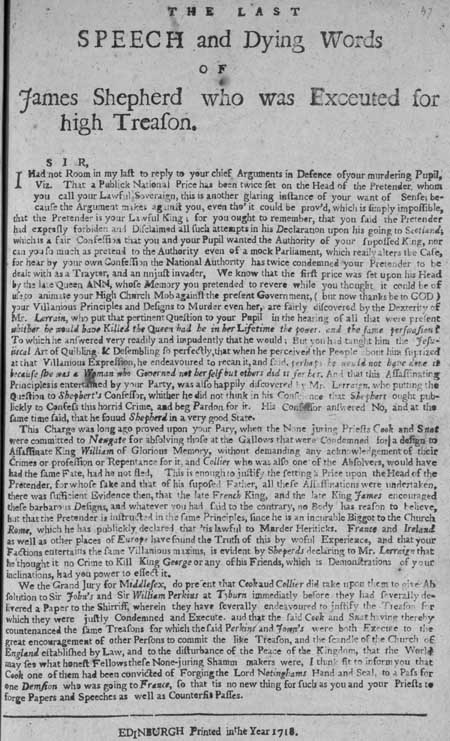Commentary
This broadside begins: 'THE LAST SPEECH and Dying Words of James Shepherd who was Exceuted for high Treason.' A note at the bottom of the broadside informs the reader that it was printed in Edinburgh in 1718. High treason was considered at this time to be the most serious of captial crimes. Any activities that were deemed a betrayal of one's country and were thought to pose a serious threat to the monarchy were considered treasonous and, as such, carried a severe penalty. Men found guilty of high treason were hung, drawn and quartered. This involved the man being dragged or drawn to the gallows, hanged and cut down whilst still alive, his stomach cut open and entrails removed and burned, his head cut off and body divided into four parts. The head and four parts were often put on public display to act as a deterrent. For the same crime, women were burnt at the stake. Reports recounting dark and salacious deeds were popular with the public, and, like today's sensationalist tabloids, sold in large numbers. Crimes could generate sequences of sheets covering descriptive accounts, court proceedings, last words, lamentations and executions as they occurred. As competition was fierce, immediacy was paramount, and these occasions provided an opportunity for printers and patterers to maximise sales.
View Transcription | Download PDF Facsimile
|
 |
Date of publication:
1718 shelfmark: Ry.III.c.36(047)
 View larger image
View larger image
|


